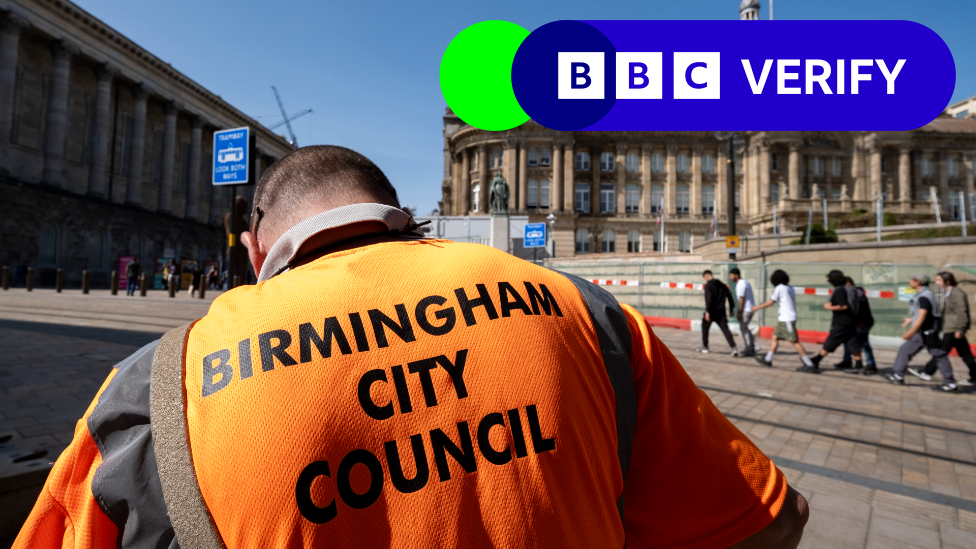Budget: Do councils spend too much on diversity schemes?
- Published

The Budget is a delicate balancing act for any chancellor. How much money is there for voter friendly announcements? Where to cut and where to spend? What political messages do you want to send?
Council budgets are under significant pressure. A growing number are effectively declaring bankruptcy. Some are announcing big cuts to try and balance the books.
We are told the chancellor will use Wednesday's Budget to urge councils to spend less on diversity schemes. These schemes are varied but are often designed to look into discrimination or focus on protected characteristics like race or disability.
Chancellor Jeremy Hunt says he finds some initiatives hard to defend.
The Local Government Association - which represents councils in England - says such a focus is a distraction in the debate over funding.
But how much money would it actually save?
Coming up with exact figures is tricky. Councils can count things differently - and do not include all the information in their annual accounts.
But a group of Conservatives - Conservative Way Forward - sent Freedom of Information (FOI) requests to hundreds of councils and other public bodies in 2022 asking for details of the number of roles focussed on issues of equality, diversity or inclusivity - and their salary band.
The group identified around £30m being spent across 397 local councils (that works out at just over £75,000 each, on average).
We have gone through the answers they got from a number of English councils which have issued Section 114 notices recently.
These notices are usually issued when a council cannot meet its spending commitments from its income - meaning it is effectively bankrupt.
The numbers of staff the councils employed on equality, diversity and inclusion roles varied significantly.
For example, Thurrock said it employed none when it responded to the FOI request. Slough employed 0.6 of a full-time role.
Birmingham - one of the biggest councils in the country - employed 11 people in different roles. It could have saved £450,374 by axing them.
Nottingham could have saved £154,165 by getting rid of its 4.5 full time equivalent positions.
But it is also worth highlighting that these sums are not huge in terms of overall council spending.
Birmingham Council had a services budget of just over £2bn at the start of the 2022-23 financial year. That means spending £450,000 on diversity staffing schemes at that time was worth about 0.02% of total spend on services.
Remember all these figures are from 2022. We have gone back to the councils in question to ask for up-to-date figures and we will update this story if and when we get responses.
It would have also been possible to look at many other councils. Some others are likely to have higher spends. There may also have been other costs like spending on diversity training programmes not identified in the FOIs.
But we wanted to test the extent to which this could have made a difference in those councils facing the most significant financial pressures.
Additional reporting by Tamara Kovacevic and Daniel Wainwright
Related Topics
- Published4 March